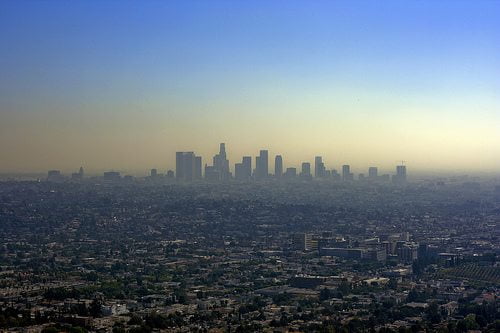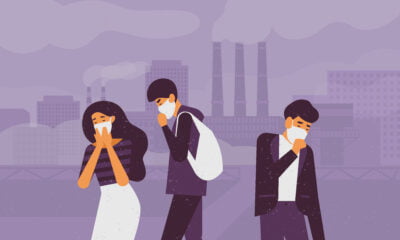

Environment
World Health Organisation: 7 million people died because of air pollution in 2012
The World Health Organisation (WHO) has revealed that one in eight total global deaths in 2012 was been caused by air pollutants, which resulted in a high number of cardiovascular and respiratory diseases.
The organisation estimates that pollution from industries, cooking fires and auto fumes caused 7 million premature deaths worldwide in 2012.
Indoor and outdoor air pollution has resulted in a high number of people, especially in the Southeast Asia and Western Pacific regions, having respiratory and cardiovascular diseases, such as a stroke, lung cancer and ischemic heart diseases.
Experts from the WHO have said that the risks associated with air pollution are now “far greater than previously thought or understood”.
Dr Carlos Dora, coordinator for public health, environmental and social determinants of health at the WHO, said, “Excessive air pollution is often a by-product of unsustainable policies in sectors such as transport, energy, waste management and industry. In most cases, healthier strategies will also be more economical in the long term due to health-care cost savings as well as climate gains.
“The WHO and health sectors have a unique role in translating scientific evidence on air pollution into policies that can deliver impact and improvements that will save lives.”
Friends of the Earth air pollution campaigner Jenny Bates commented on the figures, “Breathing clean air should be a basic human right – it’s a scandal that poor air quality kills millions of people around the world each year.
”Strong and urgent measures are needed to end this scandal, including action on road traffic, the main cause of most of the UK’s pollution.”
The WHO announced in October it had classified outdoor air pollution as the most widespread environmental carcinogenic for humans.
Further reading:
Pollution from coal kills 1,600 a year, says health charity
World Health Organisation: air pollution is carcinogenic to humans
‘Safe’ pollution levels can amplify lung cancer and heart failure risks
Beijing issues first ‘orange’ pollution warning amid smog crisis


 Environment12 months ago
Environment12 months agoAre Polymer Banknotes: an Eco-Friendly Trend or a Groundswell?

 Features11 months ago
Features11 months agoEco-Friendly Cryptocurrencies: Sustainable Investment Choices

 Features12 months ago
Features12 months agoEco-Friendly Crypto Traders Must Find the Right Exchange

 Energy11 months ago
Energy11 months agoThe Growing Role of Solar Panels in Ireland’s Energy Future




























